How to hire a conversion rate optimisation consultant
Hiring a new professional figure is always a tricky ordeal. Here's to hire a conversion rate optimization consultant effectively.
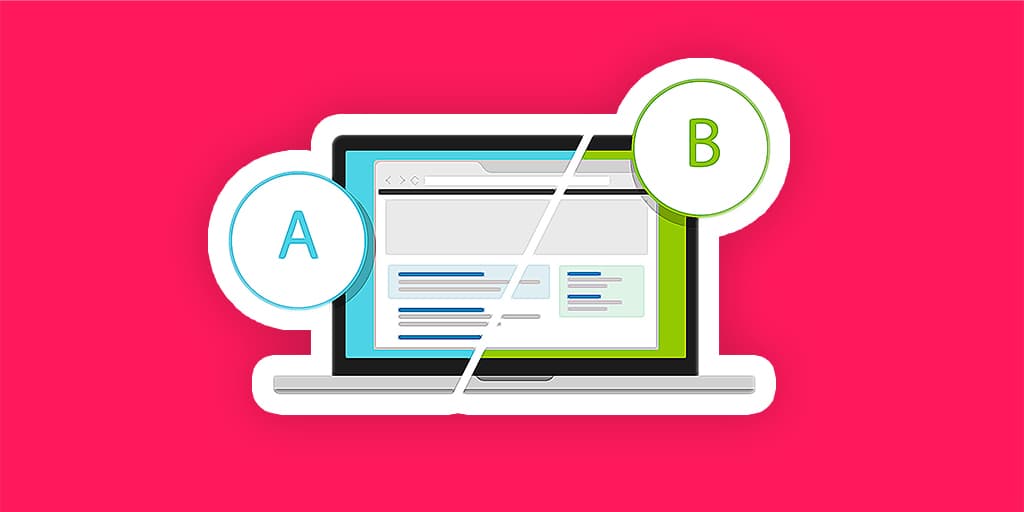
A question often asked is why look for a conversion rate optimisation consultant as opposed to having an in-house specialist?
According to research by Convert, marketing agencies win 21% more projects compared to in-house team members...
This makes sense, as not only does talent in an agency build their expertise daily with multiple clients, but they already have efficient processes in place so you don’t have to reinvent the wheel.
Hiring a consultant will give you the results you're hoping for faster than hiring an employee to train.
Hiring a consultant will give you the results you're hoping for faster. That's the gist of it. However, not all conversion optimisation consultants are born equal.
Let's look at the fundamentals of CRO as they relate to hiring the right consultant and see how they affect the bottom line of your business.
What does a conversion rate optimisation consultant do?
A conversion optimisation consultant facilitates effective digital marketing to increase the number of leads coming through your existing pages without necessarily having to increase your traffic.
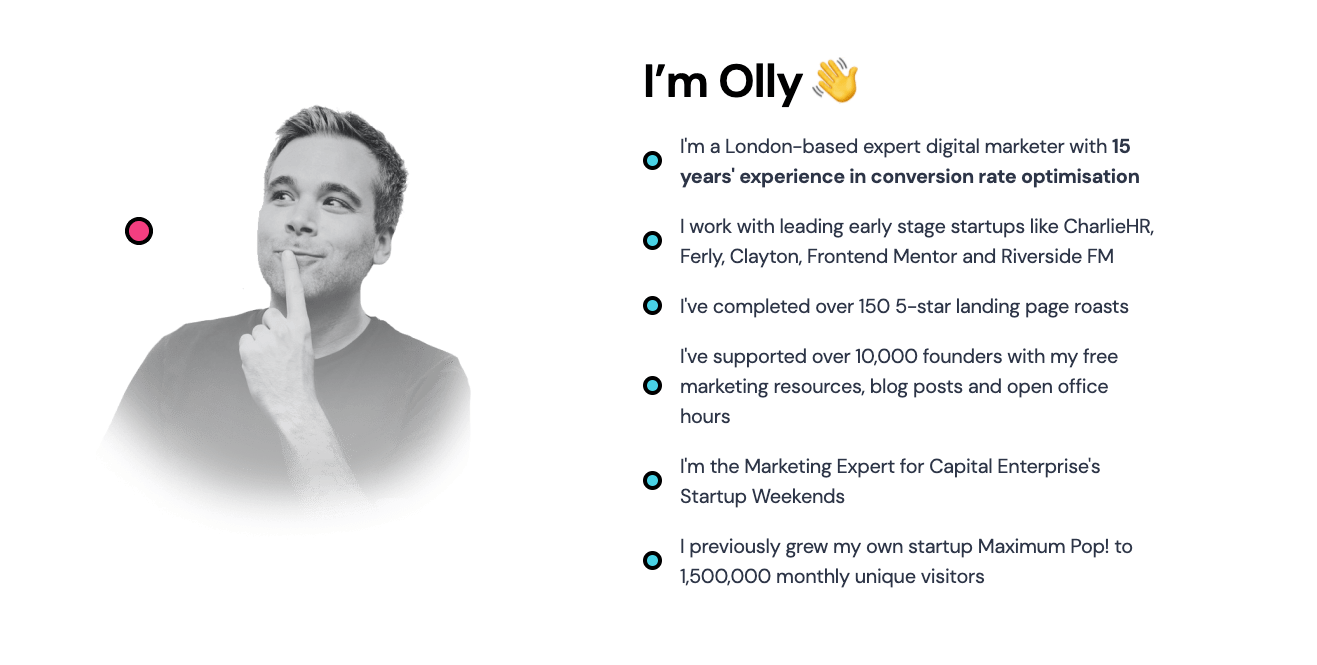
Experts assess company website sales channels, establish control webpages for A/B testing, and maximise the site for higher engagement, conversion percentages, and ultimately sales.
3 things to know before you ask for a quote
It's important that you understand the fundamentals of CRO before you go and ask for a quote on your project (whether it be one or multiple pages):
1. CRO is all about user experience
Whether it’s a sales funnel, full website, or simple landing page, what you're looking to achieve is a great user experience, from the time the person enters your page to the time they provide their data and purchase something.
User experience is about providing a dynamic, engaging, accessible, and easy to walk path that promotes a pleasant journey for the customer.
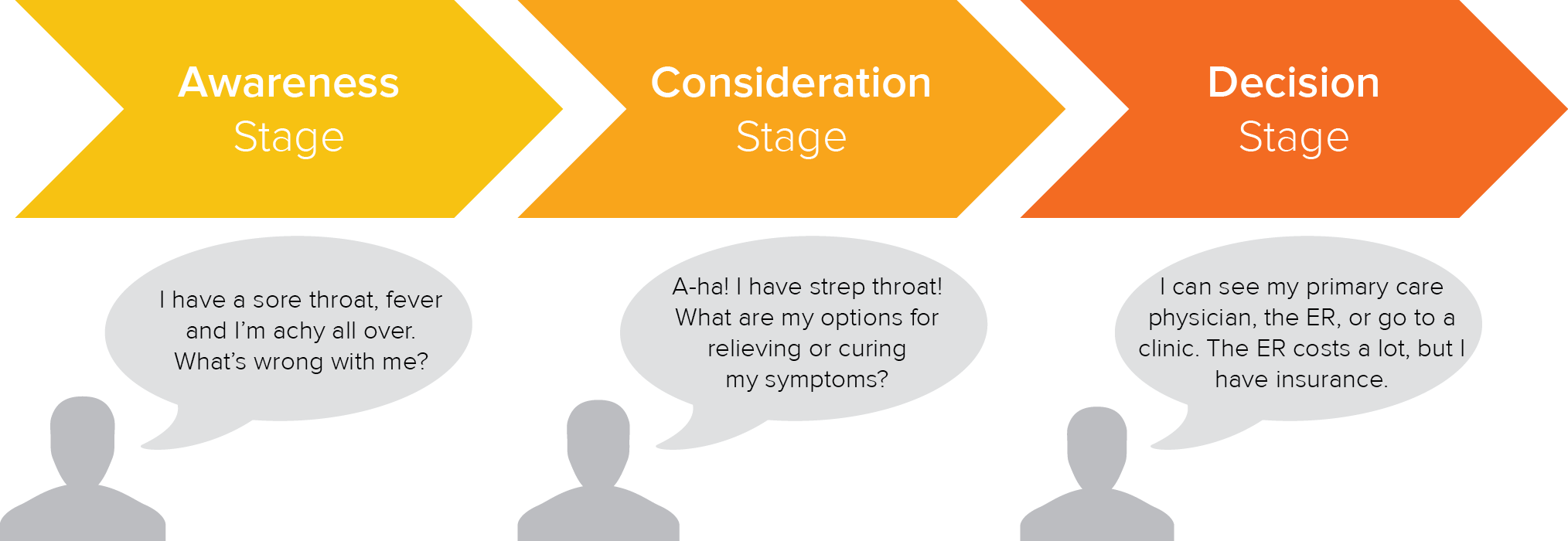
The job of a conversion rate optimisation (CRO) consultant is to test and make sure that each touch point along that journey performs at its best so that you reach—and potentially surpass—your business goals.
2. Visual hierarchy, copy, and colour
Even if a conversion rate optimisation consultant may not necessarily come from a design or copywriting background, there are certain fundamentals of both practices they need to know to be great at their job.
One of the most critical principles for a CRO consultant to understand is visual hierarchy and knowing how people consume content.
This ranking principle sorts the design elements into an interesting process that draws the reader’s eye—step by step—to the ultimate benefits-driven call to action.
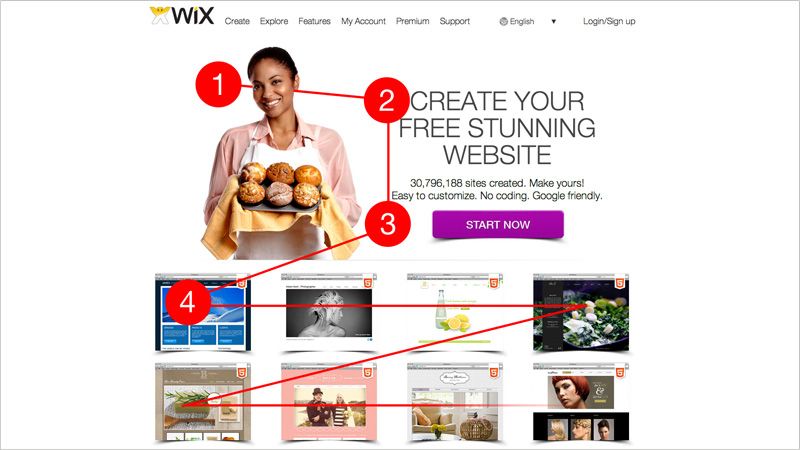
Some of the typical factors in a Visual Hierarchy include:
- Copy Elements: To show the reader what content is more important than others different font sizes, typeface and weights are used. Also, appropriate “H” tags for titles are essential.
- Color Contrast: Again, the bolder and brighter the color, the more emphasis will be placed on the design element and draw in the reader’s eye.
Ahead of short-listing candidates, it’s worth looking at their portfolios.
There, look for clear indications of the consultant helping arrange or modify elements on a page so that they capture the visitors' attention.
Why? Because a weak understanding of placement and visual hierarchy is an absolute giveaway as to the level of a CRO consultant's experience.
3. A/B testing is key to success
This is probably the most critical skill any conversion rate optimisation consultant must possess. Its purpose is to test out different versions of your marketing collateral with your target audience. The goal is to see what performs best by presenting and comparing “A” and a “B” version of:
- Headlines
- Call to actions
- Forms
- Layout
- Colors
- Fonts
… and more.
When done correctly, this will help:
- Increase conversions
- Boost sales
- Enhance your content and design
- Reduce cart abandonment (e-commerce only)
A lot of small (and large) organizations underestimate the power of this practice.
According to data by Builtwith:
Less than 0.11% of the total websites online are using CRO tools or actively running A/B testing.
That is an abysmal amount when you consider that CRO produces results for some of the most successful digital firms up to this day.
So in terms of pre-screening your prospective conversion rate optimisation consultants, this is where the rubber hits the road.
If your potential candidate can’t show meaningful statistics and improvements on experiments they have run, then this is a very loud alarm bell they don’t have the experience you need.
Conversion rate optimisation: How to hire a consultant
Once you’ve done your pre-screening it’s time to move onto the hiring process itself. Here are 7 tips to get the best conversion rate optimisation (CRO) consultant for your organisation.
#1: Understand CRO fundamentals
When looking at hiring a consultant, check that they have a sound CRO foundation. Putting together a list of questions to test their knowledge is a great way to do that. You can add these to the brief you send them.
When looking at hiring a consultant, check that they have a sound CRO foundation.
It’s important to ask how they would carry out the CRO, what their testing methods are, and what data to look after for success/failure.
Sample questions may be:
- Content: What content is best suited to the top, middle, and bottom of the funnel? How would you test that? How would you evaluate what’s best at converting a specific segment of your target audience?
- Website traffic: What are the average engagement rates for your industry? How do you increase engagement on your site?
- Email marketing: What email campaign is best suited for X? Where and when would you use them? How would you test each element?
- Sales Pages: Are long-form sales pages better than a video sales letter? What are the different variables you would test?
- ROI: How would you measure success/failure? What increase in X variable can you expect from optimising element Y?
Any vagueness in answering these fundamentals is cause for concern. A CRO consultant should help you understand that conversion rate optimisation is a continuous process and that there's no guarantee—you learn by testing.
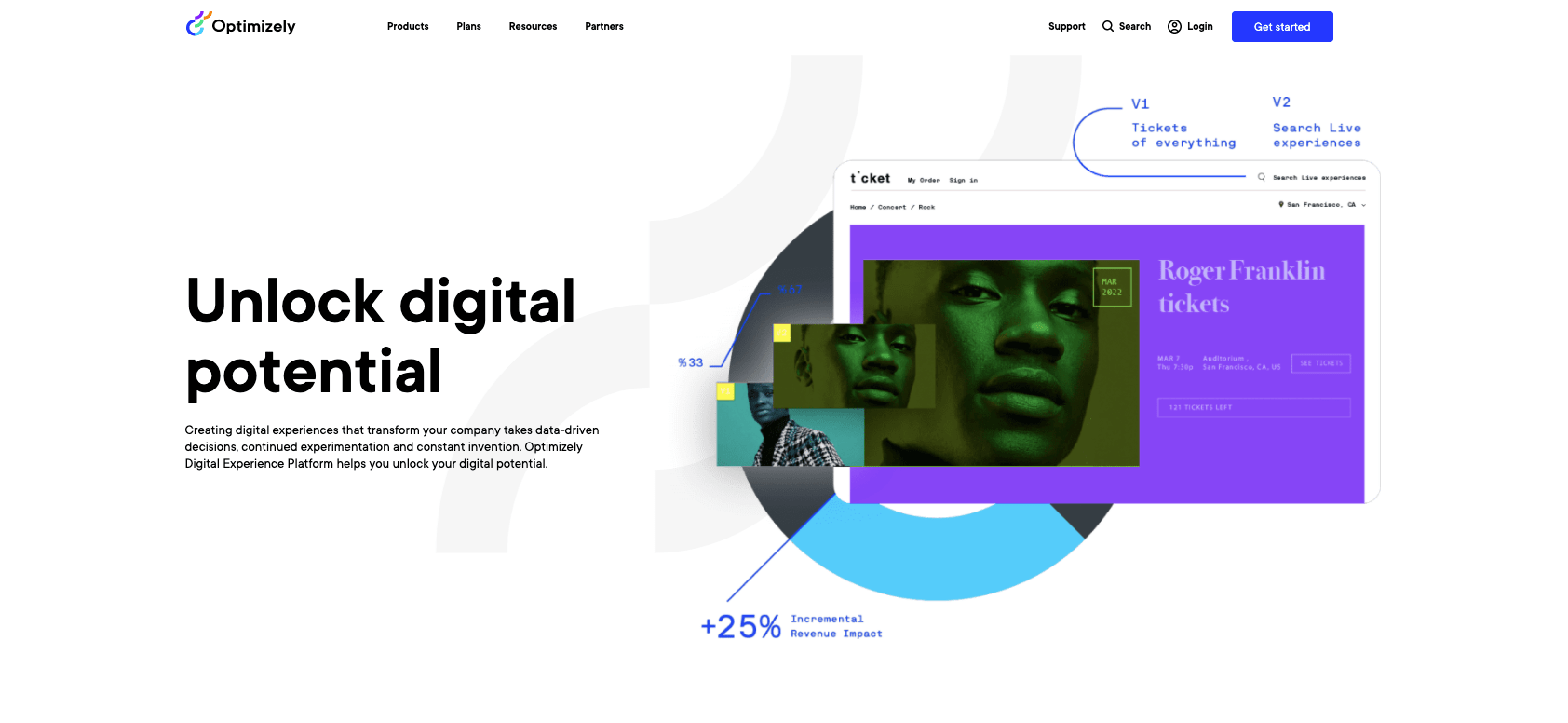
In fact, the first test will never be the one that gives you the ROI you're hoping for. There can be several tests off of which other tests can be done as you understand how users interact with your website through data.
#2: Focus on a specific desired outcome
Having a primary goal for the candidate to focus on is important.
Throwing too much at them at once is a recipe for failure. So, looking at keeping it simple, choose one goal. For example, it may be to optimise 1 page.
Then, find out how they would create a strategy for this "small" task and define what the result would look like.
From your side, it’s important to know how you’re going to evaluate them and what metrics to use. This will usually be based on the Return On Investment you’ll expect back from the work they do.
#3: Prepare a brief before you start looking
You’ll need to be crystal clear about what you want your conversion rate optimisation consultant to do.
If you aren’t explicit, it can give rise to bad communication and mixed messaging and ultimately lead to the project failing.
Be clear in your requirements; good communication goes a long way towards a successful CRO project.
Your strategy brief needs to be simple. First, give them information about the business and the project. Show them:
- Where you are now: How traffic comes to your website and funnel. Who are the visitors and the channels they use. (You can get this information via your Google Analytics installation).
- What’s getting in the way: Things you feel like are obstacles in the customer journey. This is a significant factor, as it’s where the consultant will spend most of his time.
- Where you want to be: The outcomes you'd like to achieve as the result of a CRO campaign (usually an increase in QoQ conversions).
The more targeted information you can put into your brief, the quicker the CRO consultant will be able to get a handle on the project.
#4: Make a shortlist of CRO consultants
Ideally, you’ve gone through a few portfolios already as you prepared the brief and looked at the factors outlined in the previous sections.
Now is the time to make a shortlist of the ones that look interesting to you. Some of the best ways to find good CROs are:
- Word of mouth
- Web search via Google
- Freelance sites
- Reading blogs
Once you’ve checked their portfolios, build a list of prospective consultants you would like to consider and reach out to them.
#5: Send the brief to all at once
Like in any competition, you want to give everyone a fair chance.
Once you have a master list of those potential consultants who are interested in the project, you send the brief out to all of them to get more options.
Send the brief to multiple consultants to understand how they communicate the value they can bring to your project.
Before you even get started with a specific consultant, you’ll be able to gauge their communication, project management, and customer onboarding skills.
These are just as important as understanding the work itself.
#6: Rate each consultant on a scale of 1 to 10
Once all the answers to your brief come back, it’s time to rate each prospective conversion rate optimisation consultant on the factors we previously outlined.
It’s a good idea to use a point-based system on each variable and create an interview list from the best applications.
#7: Interview and hire the best consultant
Finally, it’s time to interview and pick your conversion rate optimisation consultant. Don’t be tempted to miss this step. You can learn more about a person in conversation than from any written application process.
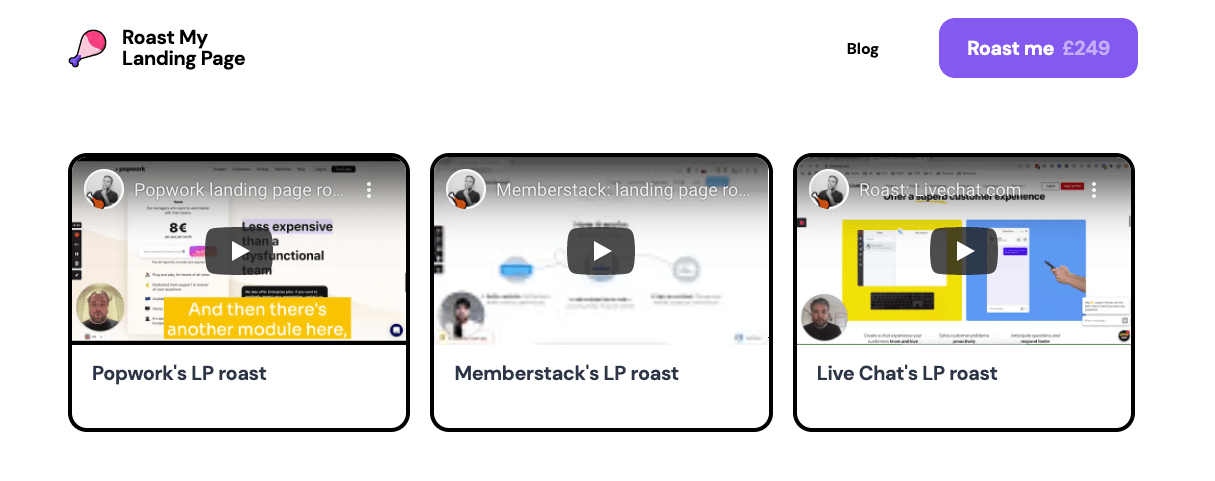
They may have exceptional skills, but they also have to be right for your culture and be aligned with your values.
Also, it’s a two-way relationship.
They should also want to work with you.
If you go through these 7 steps, you should know who the best candidate is and there’s nothing left to do but to sign the contract and hire them.
Frequently Asked Questions
What does a conversion rate optimisation specialist do?
Conversion rate consultants facilitate effective digital marketing sites to improve lead generation without companies increasing their traffic.
What is a conversion consultant?
The job of a conversion optimisation consultant is to test and guarantee that each touch point along the customer journey performs at its best.
What skills does a CRO specialist need?
A conversion rate optimisation specialist is equipped with expertise covering a number of skill sets between A/B testing, user experience (UX) design, copywriting, marketing, and data analysis.